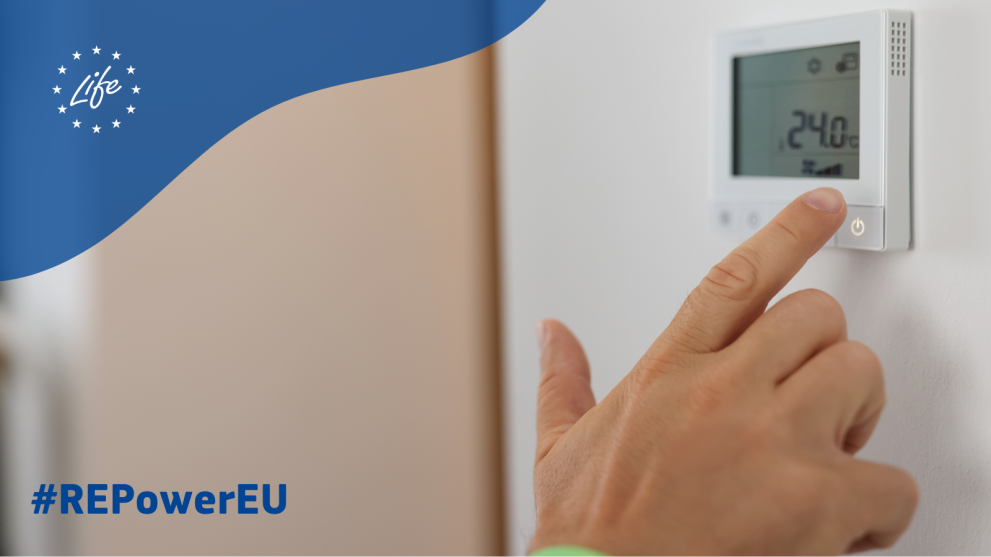
At the foot of the Italian Alps lies the city of Brescia, home to Italy’s oldest district heating systems, supplying 70% of the city’s heat demands to over 21 500 residents. It was therefore a fitting venue for this year's REPowerEU two-day conference and discussions on decarbonising the heating and cooling network. The event brought together beneficiaries of EU funded projects, such as LIFE Programme, the Innovation Fund, and Horizon Europe, along with representatives from national and EU authorities. A lineup of LIFE projects took centre stage during a panel about successful models across Europe.
Three LIFE projects were set out in the panel discussion, ‘Decarbonising heating and cooling’ on the conference’s first day: LIFE Street HP Reno, LIFE REDI4HEAT, LIFE4HeatRecovery, and Decarb City Pipes 2050 – the latter received funding from the EU’s Horizon2020 programme.
On the second day of REPowerEU Conference, participants saw a district heat network in person, with a tour of a 6MWh heat pump at the ORI Martin Steel plant in Brescia – a collaboration between steel and rolling mill ORI Martin, clean energy firm Turboden, and energy provider A2A, funded by the LIFE Programme through the project LIFE HEATLEAP. At the steel plant, participants visited two installations linking the plant’s industrial thermal heating processes with Brescia’s district heating system: the large industrial heat pump developed by Turboden and deployed through the LIFE HEATLEAP project, and the iRecovery waste heat system deployed in collaboration between A2A, Turboden and the ORI Martin.
Reduced dependency on Russian gas and decarbonisation goes hand in hand in the REPowerEU Plan. At the conference, Italian representatives highlighted how Italy’s district heating network has the potential to increase distribution up to 52 TWh. This would save 2 billion cubic metres of gas a year – as calculated by Polytechnic of Milan and Turin, equivalent to the consumption of around 838 000 Italian families. In Italy, new policies such as mandatory renewable heat supply and the EU’s Industry 5.0 initiatives have been introduced, joining existing instruments such as White Certificates and subsidies. Industry 5.0 represents a new era for the manufacturing sector – focusing on people-centric processes, sustainability, and resilience. processes, sustainability, and resilience.
Europe’s decarbonisation progress is also being driven by key funding instruments including the Innovation Fund. The Innovation funding is supporting innovative investments for the EU industrial decarbonization and bringing energy-efficient clean technologies to the market– which align to the objectives of the REPowerEU Plan.
The LIFE projects showcased above align to a number of EU directives, regulations, and policies: Ambient air quality and cleaner air for Europe Directive; Fluorinated greenhouse gases and repealing Regulation; A policy framework for climate and energy in the period from 2020 to 2030; Energy Efficiency Directive; Renewable Energy Directive; A Roadmap for moving to a competitive low carbon economy in 2050; REPowerEU Plan; and Directive to improve and extend the greenhouse emission allowance trading scheme of the Community.
Details
- Publication date
- 10 July 2024
- Author
- European Climate, Infrastructure and Environment Executive Agency

